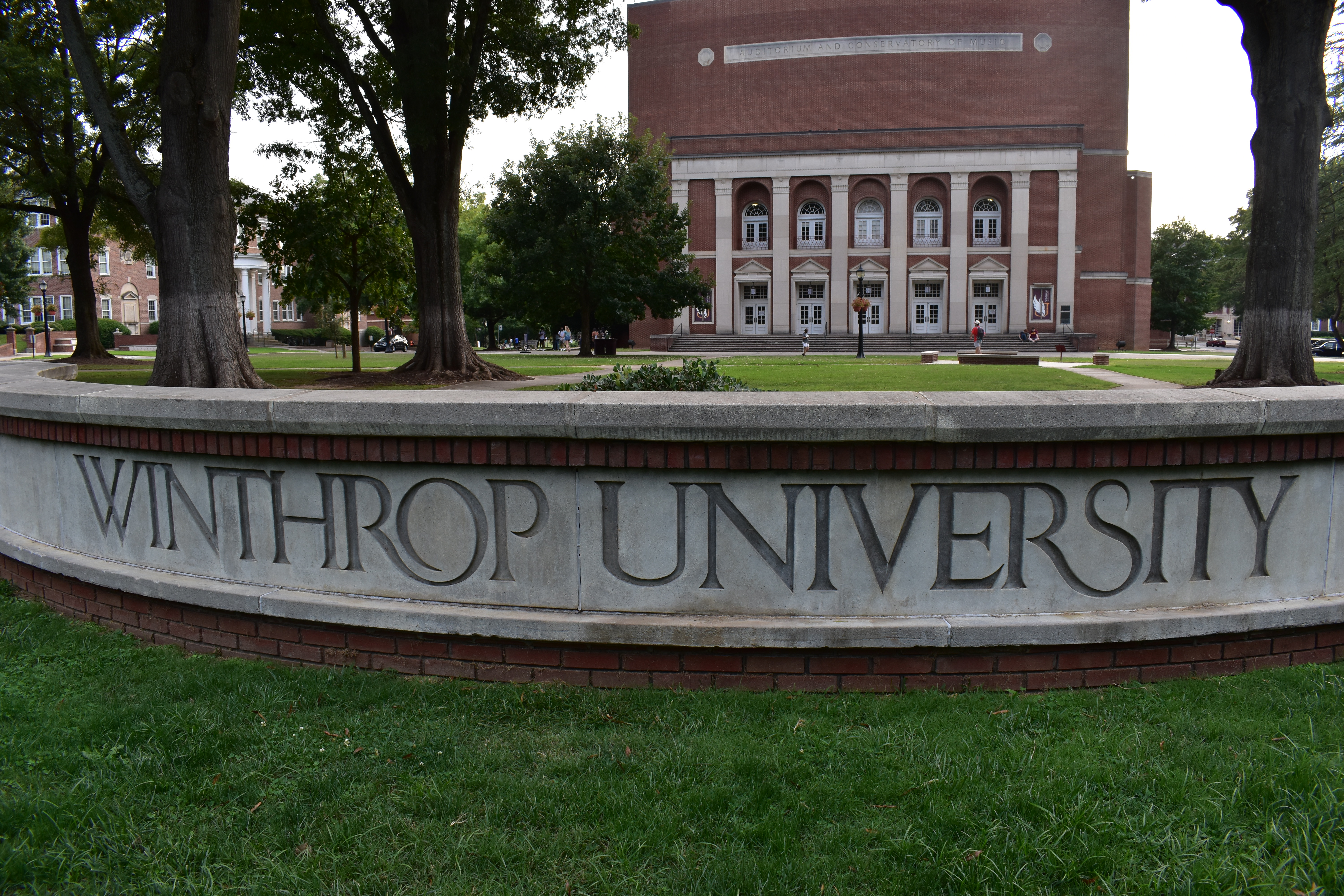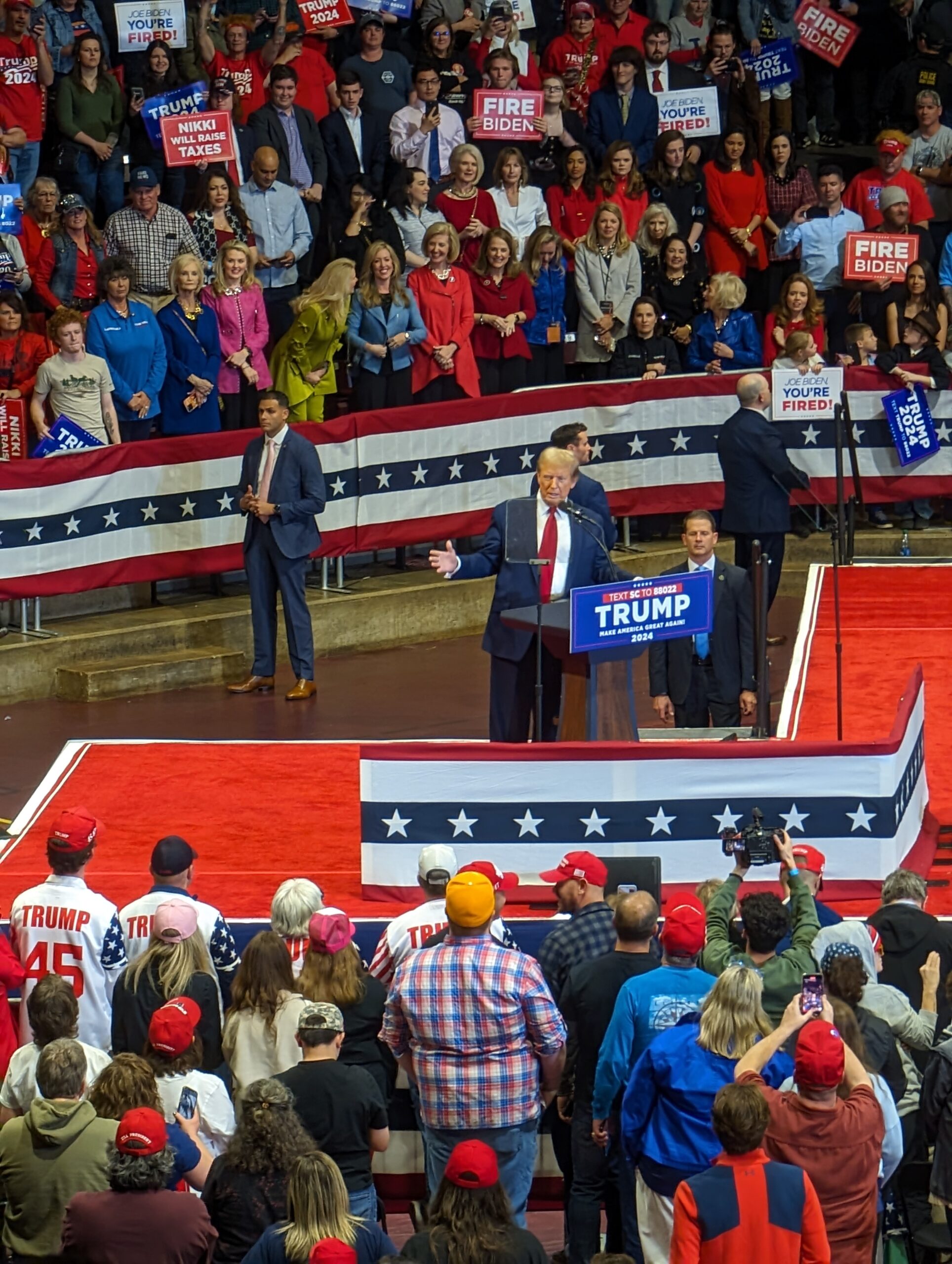As the world comes out of the worst of the COVID-19 pandemic and begins to enjoy public events again, it is apparent that Winthrop University has a remarkably vibrant culture that students get to enjoy; the history department is just one of the many programs that contributes to this campus’s vivacity and students’ enthusiasm for having experiences outside their dorm rooms.
History is just one department, but it has a presence on campus — both in the classroom and through various events that speak to (and for) a diversity of students. History is currently the home department for a number of programs and minors including African-American studies, medieval studies, peace, justice, and conflict resolution and social studies education are all in the history department. The history department’s own professor, Virginia Williams, also heads up the individualized studies program.
The Dracula talk that filled Dina’s Place the week of Halloween was sponsored by the medieval studies program, where Alice Sullivan of Tufts University in Massachusetts spoke on “Medieval Hero & Postmedieval Vampire: Dracula & His Afterimages in History and Art.” Other history events speak to modern issues. For example, late this past fall, Jimmy Chao — the founder and CEO of Chao and adjunct professor who teaches at the civil and environmental engineering department at the University of South Carolina — gave a talk titled “#Stop Asian Hate: Plan of Action.” Social studies education brought author Scott Farris to campus to give a talk about his own family history called “Family Secrets: A Personal (& Local) History of Reconstruction.”
This academic year is the thirty-year anniversary of African-American studies on Winthrop’s campus and also marks the return of the Association of Ebonites, Winthrop’s oldest organization of African American students. This past October, a year-long celebration of the anniversary kicked off with the cultural event “Let Me Clear My Throat: A Conversation on AOE and Winthrop University’s African American History” at Dina’s Place, which included a conversation among influential founders and organizers of the early Ebonites — Mrs. Patricia Brown and Sheila McMillan, Esq., two current faculty, Takita Sumter, who is dean of the College of Arts and Sciences and Adolphus Belk — as well as two student leaders, Nastajia Hamilton and Samson Demissie.
There are many events to look forward to in the coming semester, too. Every three years, Virginia Williams organizes a regional interdisciplinary conference that brings hundreds of scholars to Winthrop campus; it will be held on Feb. 24 and 25. Winthrop students and faculty from across campus will be presenting their work alongside scholars from states across the southeast. The keynote speaker will be Lakeyta M. Bonnette-Bailey of Georgia State University, who will give a talk called “This is America: Hip-Hop Culture and the Black Lives Matter Movement.” Bonnette-Bailey recently worked with Winthrop’s professor Belk of the political science department and co-authored a book with him, “For the Culture: Hip-Hop and the Fight for Social Justice.”
Continuing the celebration of the thirtieth anniversary of African American studies will be “UN Dance,” a performance lecture series focusing on the untold stories of the Black community through dance. These student performances bring history and art to the stage! The year-long commemoration of African American studies and the reintroduction of the Association of Ebonites culminates with events in April including the twenty-first annual Dorothy Perry Thompson Colloquium in African American Studies and the African American Experience, which will take place on April 13. Three of Winthrop’s African American pioneers, Cynthia Roddey, Delores Johnson Hurt, and Sue Frances Meriwether Steed, will be guest speakers at the colloquium.
This spring, the medieval studies program will host Mary Valante of Appalachian State University as part of Medieval Studies Week. Valante had been scheduled to visit Winthrop in the spring of 2020 to speak about women’s labor in Viking towns as well as lead a workshop on medieval Viking women’s crafts; however, the university had already shut down during the initial global outbreak of COVID-19. Valante looks forward to visiting Winthrop campus to discuss Viking women this semester.
The history department also works with Winthrop students to help promote their plans and activities. It was Nastajia Hamilton, a senior in the Department of Psychology, who worked to re-establish the Association of Ebonites on Winthrop’s campus. Phi Alpha Theta — the history honors society — regularly helps coordinate and sponsor history events. The 1913 Society, a group of Winthrop history graduate students, has organized a small academic conference at Winthrop this spring.
Naturally, the history department coordinates with people and organizations in the area. After all, Winthrop campus is a part of a larger regional community. The history department has worked with Historic Rock Hill, Historic Fort Mill, and the Catawba Nation.
At the Movement Conference this spring, there will be a Rock Hill Civil Rights Movement Plenary session.
Sponsors of the conference include the Carrie Chapman Catt Center for Women and Politics at Iowa State, the Southeast Regional Seminar in African studies, the Southeastern Medieval Association, and the University of North Carolina Charlotte Department of Interdisciplinary Studies, not to mention Visit York County and JT’s Kia of Rock Hill.
This spring, the social studies education program is also helping coordinate History Day, an event where middle school and high school students from across South Carolina come to Winthrop campus to present their work.
All in all, Winthrop University offers a vibrant cultural community that is fun and connected to the wider world, and history faculty and students alike are actively engaged in helping create this community and participate in it.




